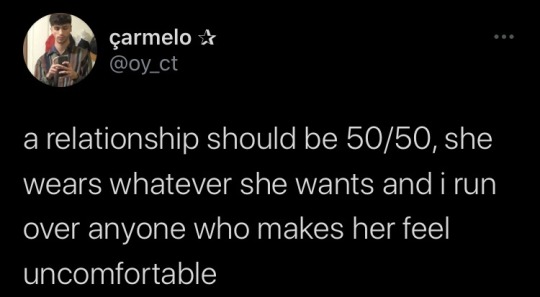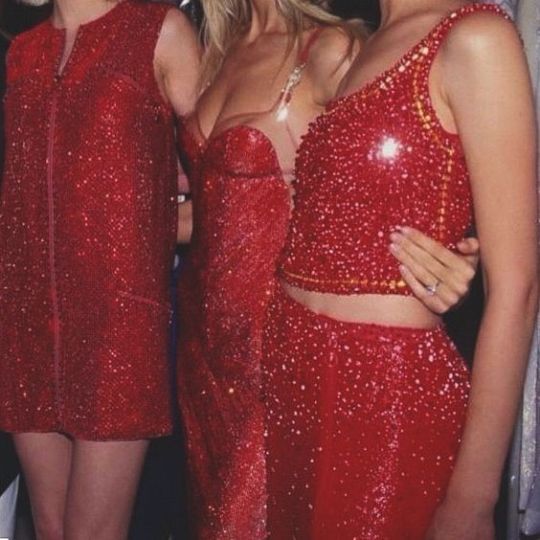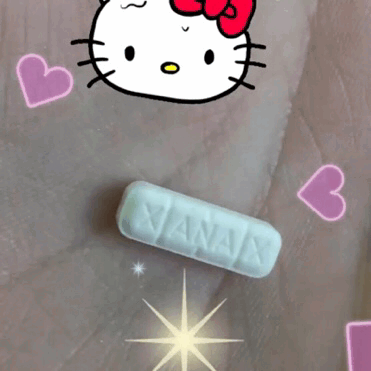#soft ghetto blog
Text

#dark femininity#dark blog#black coquette#dark femenine#dark feminine energy#dark fashion#dark feminine aesthetic#siren aesthetic#female hysteria#black doll#fatal attraction#fashion icon#high fashion#fashion design#dark gothic#gothic romance#gothcore#manic pixie dream girl#gothic#lana del rey aesthetic#lana del ray aka lizzy grant#2014 aesthetic#black beauty#black aesthetic#dark girly#dark femme#dark aesthetic#dark core gothique#dark coquette#soft ghetto
18 notes
·
View notes
Text

D o y o u t h i n k w e a l l h a v e a soulmate?
#aesthetic#grunge#viral#soft aesthetic#pink#viral images#tumblr girls#pink aesthetic#ghetto#cyber#cyber ghetto#scene aesthetic#soft pink#flowers#rainymood#pink blog#pink flowers#pretty face#art#quote#soulmates
5 notes
·
View notes
Text
❤️🔥back to being cokes out of my mind ig❤️🔥
#coke binge#coke#drugs#snow#blow#addiction#addict#cyberghetto#grunge#cyber ghetto#cyberspace#cyberpunk#ghetto#soft ghetto#cyber#aesthetic#ghetto blog#y2k#y2k aesthetic#y2k fashion#soft grunge#grunge blog#hip hop#disposable#rap#glow
3 notes
·
View notes
Note
even if there’s a solution to a “problem”, someone can still talk abt how they don’t like said problem… you know that right? it’s always “then ignore them” or write them yourself”… who says that ppl don’t do that already. it was one opinion. no one was demanding black writers to not write wtv they want, the person only shared their view and everyone went crazy… you legit wrote a think piece over this. There shouldn’t be fighting yeah, but maybe ppl should stop feeling butthurt over opinions. users make the most trivial things a bigger issue on tumblr, legit arguing with a minor lmao
i ask you to read all of this before sending another ask, its another “think piece” but its literally the answer to why what these woman are askin is lowkey problematic and i dont blame folks for not noticing dogwhistles. im also not say all “soft girls” are spouting this stuff. (hell im one of them). im also not calling these women evil, cuz they may not truly know what they saying is problematic as we live in a capitalist yt supremacist system. im more than happy to answer more. im not somebody that gon dismiss you if you wanna have discourse💖
but yes, you can talk about a problem when its in good faith as it actually cultivates productive insight. but bad faith arguments distract us from the real problems that both groups actually want to see fixed. however we need to acknowledge that most ADULTS who come with this “soft life fic” opinion be in bad faith.
bad faith is trying to get us to come back to things both parties already agree on. we all agree that soft fic aint seen much. what we are saying is why you keep coming in the dark/urban fic inbox stating it for people who have no problem with you? we’ve assessed the “problem” and we all agree it needs fixing. its like we running in circles, instead of different directions to fix other problems. the question is how are you going to contribute to fixing it in a healthy way and how do you want us to help.
im sure cherry and her friends would love to recommend a homegirls work so long as shes respectful. HELL I’LL EVEN DO IT!!!
tho i don’t recommend coming into blogs who are strictly dark and askin’ them for anything other than that. just like how soft writers don’t want to primarily write dark.
its not butthurt when you come on someone’s page calling them “ghetto” “baby mamas” then try and position it against “soft life” “divine feminine” “old money” aesthetics.
im not saying thats what this little girl did, but ive seen grown adult women do that. and thats nasty as hell to be positioning that.
the reason she probably caught flack is because she unfortunately used a simple question thats been hijacked and used by bad faith arguers when they come to urban fic accounts.
thats usually the question to get a leg in the door to start spouting off lowkey antiblack and classist shit.
and i dont know where soft being only afforded to the croquette looking girls came from. some of the softest girls i know are high fem baddies. so thats very weird, especially when you consider that black women make up majority of that aesthetic.
essentially its respectability politics and thats why its not trivial. to most, this looks like a minor creative liberties dispute, but the underlying theme is actually steeped in so much politics that affect black women for real.
i mean just look at the whole bonnet and pajama pants debate. or the straight hair or braids for your birthday/formal event debate. or the wigs vs natural hair debate. baby mama vs wifey debate (if you believe how a woman carries herself in a way thats nondestructive to others, is a reason as to why she doesn’t deserve respect; you not a feminist.)
its grown folks bratz vs barbie all over again.
not even gon hold you, i didn’t know that was a minor. just reblogged @chrollohearttags post on my dash. anybody doing anything other than telling that little girl to get off they page is a weirdo. but cherry made a general post thats been a topic of discussion AMONGST BLACK WOMEN since we’ve been writing stories. so ofc thats what my “think piece” is about. she may have commented one question but some iteration of that same question has been around for years. i’m responding to that.
since i now know this is a minor, they could have very well been wanting to know why there is a saturation of these fics on here. and i would have told her about the culture of urban fic being ONE of the first pioneers in Black Smut Fiction. it literally helped shape the black writing culture whether bad or good. then i wouldve told her that when she’s older she could contribute to said culture. but right now she should not be consuming any sexual media.
and to ask a question like that, its clear she has some gripes about the way general media treats black women; which those are well-founded. i understand hating the “ride or die”, or the “settling for less” when it comes to media for black women. but how can you read about a specific aesthetic or lifestyle and immediately know thats was going on?
these women used to have valid points and some still do but like this little girl, they cant tell the difference and if they can, they want any kind of reputation for “ghetto” girls out the window. there’s nothing wrong with being “ghetto” and nothing wrong with being a “the soft divine feminine” but we do need to talk about why the latter feels comfortable coming on someone like cherry’s page too disparage girls who aesthetics and social values don’t align with them.
writers like cherry aren’t advocating abuse, their characters are living they best lives. doing “ghetto” shit and truly loving the partners they’re with.
there are legit women out there who are “ghetto” that love they life. and are in healthy relationships. its vile to say that the way someone simply chooses to exist is a direct result of how black women face abuse, especially as something as silly as wigs, body con dresses and long nails. or even activities like twerking, having babies, doing drugs and partying.
its kinda like this whole Sukiana situation vs the Home Depot girl. Both were sexually harrassed but people tried to victim blame Suki more cuz of the way she dress and act. thats nasty. (plus there was no versus to begin with cuz neither one deserved it)
like there IS something to be said about how women who tend to write urban fic -at least in its early days- really do live the lives they are writing about. granted, looking back, some of these women were so unhealed that they ended up romanticizing abuse. but most girls now understand that you can live a hood lifestyle and not put up with bullshit.
somewhere along the way, the “city girl/ghetto/high fem” aesthetic got associated with abuse, crime, and poverty. which is crazy cuz girls who look like JT be havin’ money, a good life and still have plug/rapper boyfriends who not killing or getting them killed.
so if these women would be honest, its not about the way the “urban” girls look or behave. the real problem is the abuse that these women face.
which i see how thats a problem but abuse doesn’t correlate to aesthetics and its not a causation of abuse either.
soft girls can experience abuse. they experience financial, domestic abuse, sexual abuse. these women who hate urban fic, keep forgetting that the soft girl is modeled after the tradition yt housewife who faced abuse too. just cuz you get out the hood and get a financial stable man that isnt a plug or gangbanger dont mean he not gon beat yo ass or expect loyalty when he do some dubious shit.
yall ever seen the Stepford Wives?
now you can have the vintage look without the vintage values, but thats not what most of these women who come onto cherry page be talking like.
they disagree with any depiction of your so called city girl —whether good or bad.
it’s counterproductive to feminism. it quite literally antichoice feminism which is a huge problem with feminism today because it relies too much on this yt viewpoint of responsibility politics. i suggest people really read “Hood Feminism” by Mikki Kendall.
anyway thats whats been making people like cherry become upset and rather than having patience, they ain’t got no more to give cuz they keep having to defend themselves and explain why talking like this is a microaggression. they exhausted.
anyway im free to talk more, if i didnt explain good.
21 notes
·
View notes
Text
Meduza's The Beet: The artist, the shoes, and the death camp
Hello, and welcome back to The Beet!
I’m Eilish Hart, the editor of this weekly dispatch from Meduza that brings you long-form journalism from across Central and Eastern Europe, the Caucasus, and Central Asia. As it happens, our newsletter’s audience is just 275 subscribers shy of its next round number — and I’d love to reach that milestone before the year ends. So, please take a moment to subscribe to The Beet or, if you’re already a loyal subscriber, forward this email to a friend. Our newsletter is free, but Meduza’s reporting relies on support from readers like you, so spreading the word is a big help!
After last week’s conversation with Ukrainian Nobel Peace Prize laureate Oleksandra Matviichuk, we’re returning to our usual format with a report from Poland, courtesy of journalist James Jackson. As you may recall, James last wrote for The Beet on the eve of this fall’s Polish parliamentary election, which saw opposition parties collectively win more votes than the far-right Law and Justice Party (PiS). Having fallen far short of a parliamentary majority after eight years in power (in an election with record turnout, no less), the PiS cobbled together a doomed government that lasted all of two weeks before succumbing to a no-confidence vote on Monday. This paved the way for a new government under returning Prime Minister Donald Tusk, which had its swearing-in just yesterday.
In the brief interregnum on Tuesday, another, far gloomier event in the Polish parliament grabbed headlines: Just before the vote of confidence in Tusk’s new government, lawmaker Grzegorz Braun — the hard-right, pro-Kremlin leader of a fringe monarchist party — disrupted the proceedings by taking a fire extinguisher to the candles on a menorah lit for Hanukkah. Braun’s fellow lawmakers roundly condemned the stunt, handing him a maximum financial penalty. The parliament’s speaker, who suspended Braun from the day’s session, also promised to report him to prosecutors. In the end, the incident only served to speed things along, as lawmakers withdrew their lingering questions for Tusk and got on with the vote. Meanwhile, a rabbi relit the menorah’s candles.
All of this occurred while I was in the midst of the final edits for this week’s story, which is about none other than Grzegorz Kwiatkowski, a Polish poet and musician who has dedicated himself to raising awareness about his country’s Jewish history. Hailing from the northern port city of Gdańsk, Kwiatkowski has become known for his sharp criticism of Poland’s memory politics, particularly concerning the Holocaust and the thorny topic of Polish complicity. On his blog, Kwiatkowski said Tuesday’s incident in parliament was like a “big dark cloud” over Poland’s collective memory. And it’s precisely this type of cloud — one formed by hatred — that he’s been so actively working to sweep away. So, without further ado, over to James.

Grzegorz Kwiatkowski at the site of the former Jewish ghetto in Gdańsk
BARTOSZ BAŃKA FOR THE BEET
The artist, the shoes, and the death camp
By James Jackson
one of my forefathers must have had the gift of foresight:
I’ve only ever seen my closest in the animal light of their needs
which probably explains my isolation and loneliness
my last birthday observed in a rented bedsit
on the former Adolf Hitler Strasse in the Langhfur district
that day I took my life by turning on the gas taps
— Extract from on a hill by Grzegorz Kwiatkowski
Trudging through the soft earth of an autumnal forest, Grzegorz Kwiatkowski stops in a clearing. His trademark black jeans with gold ringmaster trim contrast against the greens and browns of the trees that rustle like the sounds of the Polish language in the wind.
Kwiatkowski is a man of many hats. He is a poet, the frontman of the post-rock band Trupa Trupa, and a critic of Poland’s memory politics.
For Kwiatkowski, this deserted spot just outside the grounds of the former Stutthof concentration camp encapsulates Poland’s complex and traumatized relationship with its past. Scattered on the forest floor and partially turned to mulch are the remains of hundreds of thousands of shoes taken from Nazi German death camps like Auschwitz.
Though Poland was a battleground for much of its history, today, the battleground is history itself. Debates about the extent of Polish collaboration in the German occupation and the Holocaust led the Law and Justice Party, which governed for the last eight years, to accuse critical historians of a “pedagogy of shame.” The courts even went so far as to prosecute scholars like Barbara Engelking and Jan Grabowski for defamation and order them to apologize for a factual inaccuracy about a long-dead mayor accused of handing over Jews to the Nazis. (The apology was later overturned on appeal.)
In 2022, the Law and Justice government demanded the equivalent of $1.3 trillion in reparations from Germany for damage done during World War II, when Poland lost 17 percent of its population — the highest proportion of any country — and saw cities like Warsaw bombed to rubble, with 85 percent of the capital destroyed.

Destruction in Gdańsk after World War II, 1945
ERICH ENGEL / ULLSTEIN BILD / GETTY IMAGES
Kwiatkowski explains that Stutthof, less than an hour’s drive from Gdańsk, was the leather repair center for all of Nazi Germany’s concentration camps in Europe. The shoes were stolen from their mostly Jewish owners — men, women, and children — and taken here to be converted into leather goods. When the Red Army liberated Stutthof in 1945, they found half a million shoes piled into mountains. These stood neglected until the 1960s, Kwiatkowski says, as Poland’s Soviet-backed communist regime suppressed much of the horror of the Holocaust from popular memory.
Established in 1962, the museum features an exhibit at the entrance with one pile of the shoes, but the rest were given a shallow burial in the forest and left to rot. “It’s the insanity of human beings,” Kwiatkowski says. He and a friend came across the decaying soles in 2015 and later told the story to the international press. After The Guardian and CBC reported on it, nothing changed. But when reporters from the German radio station Deutschlandfunk gave notice that they were coming, the museum staff reportedly panicked and had these artifacts of genocide dug up.

The barracks at the Stutthof camp, photographed after the liberation
FLHC 20214 / ALAMY / VIDA PRESS

Two cremators at Stutthof, photographed after the liberation
COLLECTION OF THE UNITED STATES HOLOCAUST MEMORIAL MUSEUM
“The museum workers were frightened and ashamed because the Germans would see it — it’s so paradoxical,” Kwiatkowski tells me, frustrated at this apparent attempt to brush history under the carpet. Unlike the museum curators, he sees confronting the crimes and neglect of history as his duty. “It’s a privilege to be a curator of this bloody past,” he says. “You can make an anti-hatred message from it: No killing, respect others.”
Later, a chance encounter at a car repair shop led him to doubt the local government’s claims that these artifacts had been disposed of respectfully. Allegedly, the local garbage dump turned away a truck carrying some of the shoes, so they burned the macabre cargo in a field next to the mechanic’s workshop. “I was very nervous and started to ask questions, but I was too curious, and then he [the mechanic] didn’t want to say more,” Kwiatkowski recounts as we drive away from Stutthof. “This is the story of Polish history.”

The shoes on display at the Stutthof Museum
BRUCE ADAMS / GETTY IMAGES

The mounds of shoes Grzegorz Kwiatkowski found in the forest near the former Stutthof camp
GRZEGORZ KWIATKOWSKI’S PERSONAL ARCHIVE
Victims and perpetrators
The Stutthof camp isn’t just abstract for Kwiatkowski; it’s intimate. At age 16, his grandfather Józef was imprisoned there for the crime of secretly learning Polish, or for refusing to work as a forced laborer for the Germans, according to conflicting accounts from Kwiatkowski’s family members. Józef’s work was unimaginable, carting dead bodies from the camp hospital to the crematorium, a grim task he would later have to repeat while working as a forced laborer in Hamburg after Allied bombing raids.

One of Józef Kwiatkowski’s documents from the Stutthof camp
GRZEGORZ KWIATKOWSKI’S PERSONAL ARCHIVE
In the interim, he was forcibly conscripted into the Wehrmacht for a short stint, a common experience for men living near what was then the German city of Danzig.
Years later, when visiting the Stutthof museum with his grandson, Józef “started crying and screaming,” Kwiatkowski recalls. “He was [reliving] the trauma,” the poet explains. “He affected my life in the biggest way because he was a broken, calm person.”
Kwiatkowski’s wife’s family suffered terribly, too. Many years into the couple’s marriage, his wife’s grandmother let slip that they had spent the war hiding in the forest. Initially, Kwiatkowski was confused — the German occupation was awful, but this wasn’t normal for ethnic Poles. Eventually, his wife admitted that her family was Jewish, but she had been raised to keep this quiet. “Will it help us here? No,” Kwiatkowski recalls her saying matter-of-factly, though he adds that she’s been more open about her Jewish identity in recent years.

A banner hung on a large synagogue in Danzig (Gdańsk) that reads “Come, beloved May and make us free from the Jews.” June 1939.
AUGUST DARWELL / PICTURE POST / HULTON ARCHIVE / GETTY IMAGES
Even after World War II, anti-Jewish violence in Poland continued to claim lives. In the town of Kielce in 1946, an angry mob, together with Polish soldiers and police, killed 42 Jewish refugees after a child falsely accused them of kidnapping. The massacre triggered a mass exodus of Poland’s surviving Jews, marking the first of four emigration waves during the communist era. The final outflow came as a result of an antisemitic campaign the communist authorities initiated in 1968.
But it’s hard to talk about memory in Poland without running into contradictions, Kwiatkowski finds. “Poland has a victim complex,” he says, and the country was indeed a victim of aggression at the hands of both Nazi Germany and the Soviet Union. “It’s very complicated because Poland was devastated in a huge way, but on the other hand, [Law and Justice’s] historical narrative is that of a country that is only a victim and innocent.”

Nazi police and soldiers attack a Jewish man in Gdańsk after the German occupation of Poland in 1939
UNIVERSAL HISTORY ARCHIVE / UNIVERSAL IMAGES GROUP / GETTY IMAGES
Kwiatkowski mentions the recently beatified Ulma family as an example. Nazi German occupiers and local police summarily executed Józef Ulma, his pregnant wife Wiktoria, and their six small children in 1944, along with the eight Jews hidden in their home. “The point of the Ulma family is they were killed because [their] Polish neighbors told the Germans that they were hiding Jews,” he explains — an inconvenient fact often left out of this story of Polish Catholic heroism.
“Jewish people were shocked because the Poles were their neighbors. Many say the Poles were worse than the Germans. [Hearing this] shocked me — but they felt betrayed,” Kwiatkowski says.
At the same time, he maintains that the main perpetrators shouldn’t be forgotten. “Germany and Austria are great at whitewashing history,” Kwiatkowski maintains, referring to the praise the two countries have received for their handling of Holocaust memory. “They did it as a nation, and they should feel bad.”
Beating the system
On top of being an outspoken critic of Poland’s nationalist memory politics, Kwiatkowski and his band Trupa Trupa provided music for director Agnieszka Holland’s award-winning film Green Border, which President Andrzej Duda and other leading government figures attacked for its depiction of Polish border guards mistreating refugees. But Kwiatkowski doesn’t want to be put in a box politically and says he supports the Law and Justice-backed demands for reparations from Germany.

Granary Island, located on the Motława river in Gdańsk, is where the city’s Jewish ghetto once stood
BARTOSZ BAŃKA FOR THE BEET
“I don’t care about the left side or right side,” Kwiatkowski says, “The Polish political class is very corrupt, from left to right. In the 1990s, they were in one party,” he continues. “Polarization helps them. It’s a cynical game that benefits them.”
During the highly-charged campaign season for this fall’s parliamentary election, the brains behind the nationalist government, Law and Justice leader Jarosław Kaczyński, made increasingly wild statements, describing his arch-rival Donald Tusk of the center-right Civic Platform as the personification of “pure evil.” He even accused the opposition of harboring secret plans to ban Poles from mushroom picking.
After the Civic Platform-led coalition won the elections, however, the musician’s tune changed. “I didn’t realize it would make me so happy,” Kwiatkowski tells me, praising the fact that his country had rejected nationalism and its accompanying rewriting of history. “The atmosphere after the elections is really great,” he continues. “If the new government wants to change positively and ethically and talk about [history] openly, I can use their positive attitude and build beautiful ethical works [of art].”
Of all Poland’s politicians, Kwiatkowski remains an admirer of Gdańsk’s most famous son: former dock worker and union leader Lech Wałęsa, who led the Solidarność movement to defeat communism and became Poland’s first president elected by popular vote. In recent years, Wałęsa has been mocked for his down-to-earth manner, celebrating his 80th birthday with a cake made of breaded pork cutlet and taking baths in beer. “He’s like a clown. He’s like Don Quixote,” Kwiatkowski says. “From his perspective, he was a nobody, and then he beat the communist system in Europe. It’s amazing.”
Even though he’s a father of two and now approaching his forties, there’s something similarly boyish about Kwiatkowski’s fascination with the history of his hometown, which produced such notable figures as writer Günter Grass and the country’s new prime minister, Donald Tusk.

The Jewish cemetery in Gdańsk
BARTOSZ BAŃKA FOR THE BEET

The Red Mouse Granary building, which served as a ghetto for Gdańsk Jews
THE TIMES OF ISRAEL

The new memorial plaque on Granary Island
BARTOSZ BAŃKA FOR THE BEET
Back in Gdańsk, Kwiatkowski takes me on a tour of Jewish cemeteries that the local council demolished after the antisemitic purge in 1968; long grass has grown over what was once holy ground. A small community group now funds the maintenance of these ruins, which antisemites desecrate with tragic regularity.
As well as cheering on the change in government, Kwiatkowski is currently celebrating a rare victory in memorializing the past: Alongside local journalist Dorota Karaś, he successfully campaigned for the site of the former Red Mouse Granary — where the Nazis imprisoned local Jews before transporting them to concentration camps — to be officially commemorated. The local authorities have now installed a plaque marking the spot where “the German Nazis created a ghetto for Gdańsk Jews,” written in Hebrew, Polish, German, and English.
But for every victory, there’s a new controversy, it seems. On Tuesday, far-right lawmaker Grzegorz Braun doused a menorah in Poland’s parliament building, lit with candles for Hanukkah, with a fire extinguisher — to near-universal condemnation. Kwiatkowski called for action in response to Braun’s antisemitic attack and promptly received an invite from Gdańsk’s mayor to take part in a Hanukkah candle-lighting ceremony at city hall alongside representatives of the local Jewish community.

Grzegorz Kwiatkowski at the site of the former Jewish ghetto in Gdańsk
BARTOSZ BAŃKA FOR THE BEET
Primo Levi and Theodor Adorno disagreed about whether there could be poetry after Auschwitz. Perhaps it takes not just poets but also musicians, historians, and even quixotic jesters to preserve the memory of the Holocaust in the lands where it was committed. As Kwiatkowski wrote on social media after the ceremony at city hall, Gdańsk is a city that remembers.
4 notes
·
View notes
Text
The Clean Girl Aesthetic: For the White and Wealthy?
With every scroll and with every swipe it’s as if I am being catapulted into what can be described as the “new revolutionary lifestyle.” We have it girls, girls girls, vanilla girls, soft girls, and clean girls. There are many more of these unique yet jarringly similar personas and/or aesthetics. Now, this type of social media content is nothing new, in fact, recent trends of aesthetics, fashion styles, and general lifestyles have been curated and recycled over decades. However, they’ve started to shift, mutate almost, into these over-consumed micro-trends that gain traction one week and are forgotten about by the time the next season rolls around. Not only that, the focus of these aesthetics has now turned into something detrimental; how we view beauty standards in America. I want to focus on one of the more persistent aesthetic lifestyles for the rest of this blog post, mainly because I believe it leads to the most harm, the “Clean Girl” aesthetic.

According to google trends, the first peak of “clean girl aesthetic” being searched on the web was in 2005. Being stagnant until May through October of 2022 when the search became popularized on the social media app TikTok. Little to light makeup, clear–poreless–skin, slicked back hair, with full glossed lips and gold jewelry. These are the characteristics of the women who flaunted this new lifestyle on their social media. And it only took a matter of months until this was the cult staple aesthetic for many. Now there’s actually nothing wrong with this aesthetic, in fact I partake in it from time to time. I mean who doesn’t love splurging on skincare and self care? As this trend emphasizes. However, there lies a few problems within how this aesthetic cemented itself into the lives of many women today. Along with some jarring consequences that come if this trend persists.
Let us start with the first issue, who actually started this trend and the problems that arise with this debate. Now of course many will say it doesn’t matter who creates or popularizes these trends and aesthetics as they come and go. However, this “clean girl” aesthetic is not a revolutionary novelty. In fact, this lifestyle aesthetic has been around for decades, the only thing that shifted was the demographic of women it is now marketed towards and by. This aesthetic was not created by white influencers like Hailey Bieber or Bella Hadid–whom many seem to credit–but by the Black and Brown women in our own communities. Now, why is this problematic? Well for one, the appropriation of this aesthetic by White women results in the discrimination of Black and Brown women in numerous aspects of our society, but mainly how WOC are perceived. An article by Rhea Gupta sums up the context perfectly, “Before, the features of the “clean girl” trend were associated with being “ghetto and dirty” rather than “clean and classy,” since women sporting these looks were WOC. For instance, gold jewelry—specifically gold hoops—has gone from “ghetto” to “clean.” Once high fashion designers, like Marc Jacobs, started showcasing gold hoops on their runways and re-labeled them as a new trend with a new high fashion name, all of a sudden gold hoops were no longer seen as “ghetto.” This is why acknowledging who created this trend matters. Women of color have been continually discriminated against for their hair, fashion, decorum, and almost everything under the sun. But the culture we have been a part of our whole lives continues to get stripped away and brands as something else, something we are excluded from and shamed for.
Now let's examine another issue that arises with this clean girl aesthetic; the rise of consumerism on social media. As previously mentioned, one of the main aspects of this clean girl aesthetic is skincare. In fact, I would say this is probably one of the most pushed and profitable components of the lifestyle. If you scroll through the hashtag “cleangirlaesthetic” on TikTok you’ll be greeted with hundreds if not thousands of videos of (mainly White)women showcasing their intricate detailed skincare shelves, routines, and tips. Now again, there is nothing wrong with this, however, if there is one thing these influencers are good at, it's influencing. This means constantly recommending and branding these skincare products as “must buys” to achieve this lifestyle. But unlike these influencers who have the money to buy these products regularly, the rest of us scramble together what’s left of our paychecks to afford maybe even half of these or equivalent dupes. To paint you a picture of just how much these influencers spend on these skincare routines alone, I am going to calculate how much an influencer's skincare shelf actually costs. With a total of 26 products, not counting the 7 products I couldn’t identify in the video, the calculated sum of this one TikToker’s skincare shelf is $1,530. That number is quite jarring to the majority who work minimum wage jobs or paycheck to paycheck. Once again no one is telling these women to stop posting this type of content online. The problem is when consumerism pushes working-class women to go into debt buying dozens of unnecessary facial serums, creams, and other products. When in reality you only need a select few to maintain a well-rounded skincare routine. Additionally, this type of marketing targeted toward women also exposes us to unnecessary fear-mongering, especially towards aging. Anti-aging rhetoric has seemingly increased alongside the rise of the clean girl aesthetic. Many products that are deemed essential as a part of these clean girl skincare routines are branded as anti-aging or said to have anti-aging ingredients. Certain practices like training your forehead muscles to not move when you raise your eyebrows(And no that isn’t a joke, someone actually made a tutorial on how to do this)have also been popularized. Many of the lifestyle changes are nothing more than a myth since one can not simply use these products or do these “exercises” and expect to not gain wrinkle or two in twenty years. You are going to age regardless, so why worry about how your skin will look? Again this type of thinking has been embedded into women's minds for decades. Mass marketing strategies pushed by influencers take advantage of women and our insecurities by trying to trick us into believing the solution to perfect skin is by buying these specific products. This leads us down a cycle of consumption where corporations and brands leech off of consumers–mainly women–who are tricked into believing this lifestyle actually benefits them.

Now, where is the solution to this problem? Well, it mainly comes with a change in mindset and how we view beauty. Destigmatizing “imperfect” skin, wrinkles, pores, acne scars, and acne, in general, is one way to lessen the impact of this consumerist mindset that pushes women into buying these products. Not being scared of aging and aembracinggrowing old also allows us to live a life nwithoutworrying about how we’ll look in thirty years. Developing this type of conscious thinking will allow us to shift into a more healthy, holistic way of thinking.
6 notes
·
View notes
Text

that partttttt
#rhosegold#tweet#relatable#funny#relationship goals#relationship#makeup#fashion#hair#beauty#luxury#mua#luxury blog#makeup artist#soft ghetto#soft ghetto blog#ghetto blog#funny tweet#meme#haha
17K notes
·
View notes
Text
today is give a hot depressed black woman $$$ day sooooo cashapp- $sarayakardashianwest 😁
#rhosegold#makeup#fashion#hair#beauty#luxury#mua#luxury blog#soft ghetto#makeup artist#black history month#bhm#black women#black woman#light skin women#light skin woman
8 notes
·
View notes
Text
We’re both depressed so let’s die together to kill our stress?
#stress#couple#grunge aesthetic#loner#grungyteens#cyber ghetto#glitter#cyberghetto#juice wrld#xxxtentacion#00s aesthetic#2000s blog#kurt cobain#body postivity#edgy aesthetic#edgy teens#anxoius#anxeity#depression#soft grunge#gothboyclique#lilpeep#seduce#self hatred#overthinking#unwanted#softghetto#softgrungeaesthetic#kms#teen quotes
151 notes
·
View notes
Text

Just me and you yeah
#dark femininity#dark blog#dark femenine#dark feminine energy#black coquette#dark fashion#dark feminine aesthetic#siren aesthetic#female hysteria#black doll#cassie#black beauty#black aesthetic#celebs#celebrities#dark femme#dark girly#dark aesthetic#2014 aesthetic#fatal attraction#fashion icon#high fashion#fashion design#hyper feminine#hyper femme#feminine urge#female rage#femme fatale#femme#soft ghetto
5 notes
·
View notes
Text


blind as a batsy 🦇🖤
#moya#street style#blvck#grunge#girls in glasses#glasses#weed blog#nature#weed#trippy#trill#alt girl#alternative#dark aesthetic#ghetto goth#soft ghetto#cyber punk#girl#dark
93 notes
·
View notes
Text

#money#vhs#cyber#cyberpunk#grunge blog#culture#glow#cyber ghetto#ghetto#y2k#soft grunge#hiphop#thug#thug niggas#hood#hood niggas
424 notes
·
View notes
Photo

#red#aesthetic#red blog#red theme#iconiclolita#fashion#looks#cyber ghetto#soft ghetto#vintage#retro#90s#red aesthetic#glitter#soft grunge
1K notes
·
View notes
Photo

That prescription take the pain away
#gif#xanax#xans#drug#bars#xannies#can#drug blog#molly#oxy#nodsquad#lean#weed#trap#soft ghetto#hello kitty#ghetto#addict#pills#mine
4K notes
·
View notes
Text

#glow#glow blog#glow aesthetic#neon#neon blog#neon aesthetic#red#window#plants#lights#aesthetic#cyber punk#sea punk#cyber goth#cyber ghetto#grunge#soft grunge#night#night time#nighttime#red glow#window glow#follow for follow#follow me#follow train#follow back#following back#lana del rey#marina and the diamonds#sky ferreira
11 notes
·
View notes

